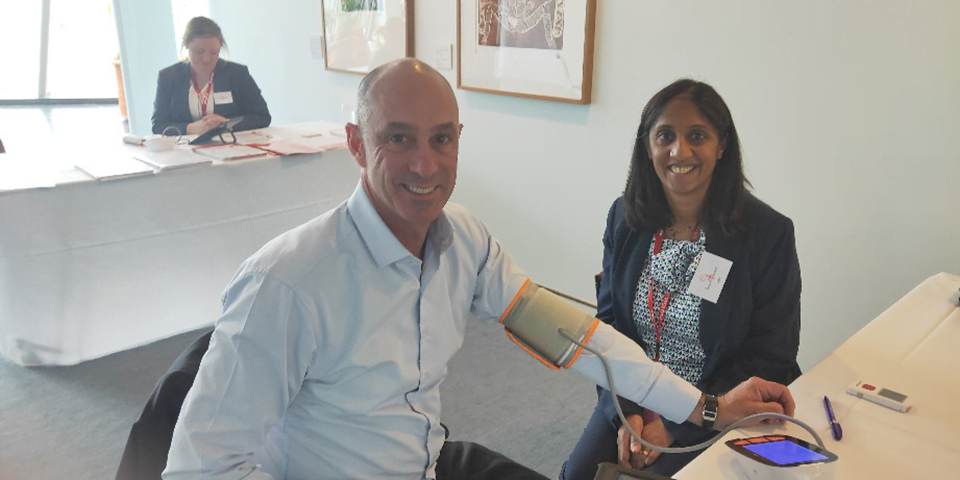Federal Parliamentarians had their heart rates tested by Canberra pharmacists this week, part of a nationwide initiative to prevent potentially fatal strokes.
The initiative by Hearts4Heart is part of Atrial Fibrillation Awareness Week (September 16-22), which aims to address alarmingly low levels of testing for atrial fibrillation, a heart condition that increases the risk of stroke five-fold.
More than 25 pharmacies across the nation are teaming up with Hearts4Heart, offering free pulse and heart rate testing during awareness week, which began on September 16 and continues through to Sunday September 22.
In Canberra, pharmacist Bev Mistry-Cable tested the pulse and heart rates of a number of politicians, amongst them Senator David Van, Rob Mitchell MP, Maria Vamvakinou MP and Dr Mike Freelander MP.
“Pharmacists are perfectly placed to identify an irregular heartbeat, which is the critical first step to preventing what could be a catastrophic stroke,” said Ms Mistry-Cable, a pharmacist from Cooleman Court Pharmacy in Weston, ACT.
“People will often seek advice from pharmacists, and this is an ideal opportunity to detect early warning signs of what could be atrial fibrillation. Early detection and timely referral can make a significant difference,” she said.
An irregular heartbeat known as atrial fibrillation can cause blood clots to form in a chamber of the heart, which can then travel to the brain, causing a stroke. It is estimated that one-in four strokes occur in people with atrial fibrillation, and most of these only learn they have the condition after suffering a stroke.
“We don’t want a stroke to be the first time any Australian discovers they have an irregular heartbeat,” said Hearts4Heart CEO, Tanya Hall, an atrial fibrillation patient herself. “Pulse and heart-rate testing is quick, it’s simple and could ultimately save lives.”
Experts say that early diagnosis must be matched by long-term use of medication that can reduce the risk of stroke by up to 70 per cent. However, a new analysis for Hearts4Heart reveals that around 25 per cent of people prescribed anticoagulation medicine discontinue therapy within 12 months.
“This is alarming. We need to ensure people diagnosed with atrial fibrillation understand why they need to continue taking the medication over the long-term,” Ms Hall said.








